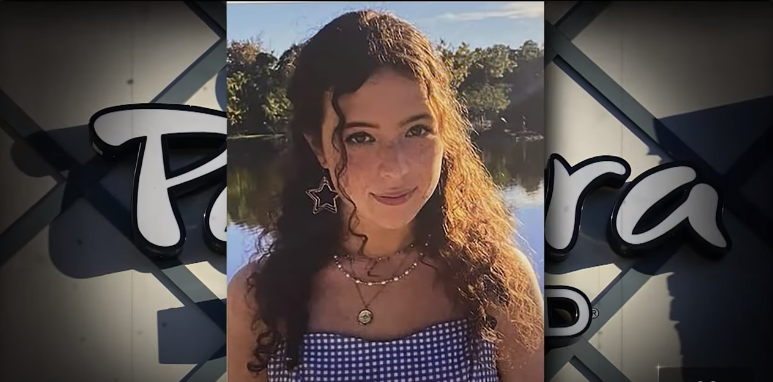In a bizarre twist of fate, our go-to fast-food haven, Panera Bread, finds itself in a legal tangle. It's not over a spicy sandwich or a cheesy delight but a seemingly innocent concoction— the 'Charged Lemonade.' Now, they're slapping on warnings like there's no tomorrow, all because of a lawsuit claiming this zesty elixir played a part in an Ivy League student's untimely exit.
 |
| Sarah Katz and a display of Panera Charged Lemonade |
So here's the scoop: Panera sneakily edited the fine print on their lemonade labels. It used to be a nonchalant sip, now it's a bold proclamation - "Naturally flavored, plant-based, with about as much CAFFEINE as our Dark Roast Coffee." They're screaming 'caffeine' in all-caps, as if that alone could fix everything.
But wait, there's more. "Use in moderation. NOT RECOMMENDED FOR children, people sensitive to caffeine, pregnant or nursing women," shouts the warning, with a similar level of urgency. It's like they just discovered they've been selling rocket fuel disguised as lemonade all along.
Let's rewind to the tragic day of September 10, 2022. Sarah Katz, a University of Pennsylvania student, grabs a Charged Lemonade from Panera in Philly, and bam—cardiac arrest. A second one hits her at the hospital, sealing her fate. Now, her parents are on Panera's case, filing a lawsuit that reads like a thriller script.
Here's the kicker: Katz had a heart condition since she was five, diagnosed with Long QT Type 1 Syndrome. The lawsuit throws shade, calling Panera's beverage a "dangerous energy drink," claiming the company knew it could be a one-way ticket to catastrophe, especially for folks with underlying heart issues.
Picture this: Panera Charged Lemonade chilling next to innocent sodas and self-serve drinks. The lawsuit says Panera didn't shout out, "Hey, we got an 'energy drink' in the house!" Nope, it played the quiet game, and now, it's paying the price.
Hold onto your seat because the lawsuit claims the caffeine in those mega-sized Charged Lemonades is like a double whammy of a Red Bull and a Monster Energy Drink combined. That's not a refreshing beverage; that's a ticking time bomb, according to the legal drama.
Panera's response? The classic "we're very saddened" spiel. They toss in a dash of transparency talk and promise a thorough investigation. But can an investigation bring back a life lost to a lemonade binge?
In this culinary theatre, Panera's 'Charged Lemonade' steals the spotlight, not for its citrusy charm but for the bitter aftermath. The audience is on edge, armed with caution, watching the legal drama unfold. It's not just a lawsuit; it's a wake-up call to reevaluate the fine line between a refreshing sip and a potential hazard in the world of fast food.
The curtain falls, but the lingering taste of Charged Lemonade remains—a reminder that, in the realm of culinary creations, transparency isn't just an ingredient; it's a lifeline. As Panera juggles legal consequences, the tale of Sarah Katz becomes a cautionary narrative, urging us to scrutinize the beverages we casually gulp down and the warnings we often overlook.
In the end, as the legal chessboard is set, we hold our collective breath, wondering if this tragedy will be a catalyst for change or just another chapter in the tumultuous narrative of consumer safety.
FAQs
How did the lawsuit regarding Panera Charged Lemonade originate?
The lawsuit emerged following the tragic death of University of Pennsylvania student Sarah Katz, who suffered cardiac arrest after consuming Panera's Charged Lemonade.
What updates did Panera Bread make to the consumer warnings?
Panera Bread quietly revised the warning text on its Charged Lemonade products, emphasizing the caffeine content and advising moderation.
What does the new warning text emphasize about the product?
The updated warning underscores that the lemonade is "Naturally flavored, plant-based, with about as much CAFFEINE as our Dark Roast Coffee."
Who filed the wrongful death lawsuit against Panera?
The parents of Sarah Katz, a 21-year-old Ivy League student, filed the wrongful death lawsuit against Panera, alleging that the highly-caffeinated drinks led to her demise.
When did Sarah Katz experience cardiac arrest after consuming Charged Lemonade?
On September 10, 2022, after purchasing a Charged Lemonade at a Philadelphia Panera location, Sarah Katz went into cardiac arrest while with friends.
What heart condition did Sarah Katz have?
Sarah Katz was diagnosed with Long QT Type 1 Syndrome at the age of 5, a heart disease that prompted her to follow medical advice, including abstaining from high-caffeine beverages.
How does the lawsuit describe Panera's beverage?
The lawsuit characterizes Panera Charged Lemonade as a "dangerous energy drink," alleging that its consumption could lead to catastrophic injuries or death, especially for individuals with underlying heart problems.
What claims does the lawsuit make about Panera's marketing and advertising?
The lawsuit asserts that Panera failed to market, advertise, and sell Charged Lemonade as an 'energy drink,' concealing its large caffeine content, additives, and stimulants.
Comments
Post a Comment